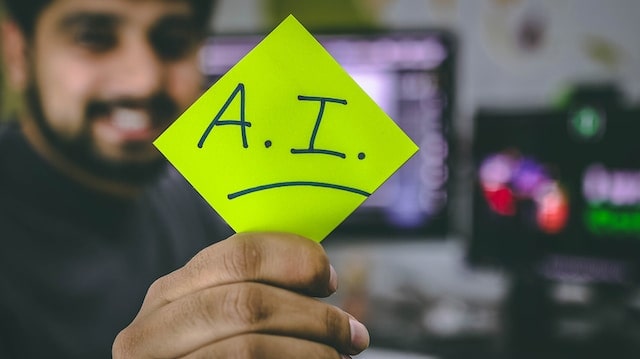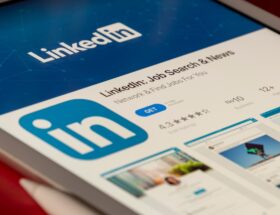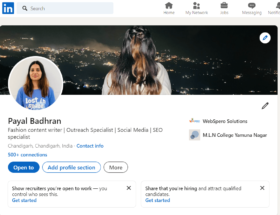In recent years, the world of influencer marketing has witnessed the rise of artificial intelligence (AI) as a powerful tool.
AI is revolutionizing the way brands and influencers collaborate and engage with their audiences, bringing forth a new era of data-driven decision-making and targeted content creation.
With its ability to process vast amounts of data and analyze audience insights, AI is infiltrating influencer marketing in numerous ways.
One prominent area where AI is making a significant impact is influencer discovery.
AI-powered platforms and tools leverage sophisticated algorithms to scour social media platforms, blogs, and other online sources, identifying potential influencers based on specific criteria.
These tools consider factors such as audience demographics, engagement rates, and content relevance, enabling brands to find the most suitable influencers for their campaigns.
Where Does AI Stand Today?

Artificial intelligence has made significant advancements in recent years, enabling machines to simulate human intelligence and perform tasks that traditionally required human intervention.
Machine learning algorithms and natural language processing have become powerful tools for analyzing vast amounts of data and extracting valuable insights.
In the context of influencer marketing, AI can streamline and enhance various aspects of the process, leading to more effective campaigns and better results for brands.
How Artificial Intelligence Can Help Brands:
- AI Can Help Identify Fake Influencers: The rise of influencer marketing has also led to the emergence of fake influencers who buy followers and engagement to appear more influential than they are. AI algorithms can analyze a multitude of data points, such as follower growth patterns, engagement rates, and audience demographics, to identify suspicious behavior and potential fake influencers. By utilizing AI, brands can mitigate the risk of partnering with influencers who lack genuine influence and ensure that their campaigns reach an authentic audience.
- Audience Analysis: Understanding the target audience is crucial for the success of any influencer marketing campaign. AI-powered tools can analyze vast amounts of data collected from social media platforms, websites, and other online sources to provide comprehensive audience insights. These insights include demographic information, interests, behaviors, and preferences, enabling brands to identify the most relevant influencers who have a strong connection with their target audience.
- Engagement Analysis: Engagement is a key metric in influencer marketing. AI algorithms can analyze engagement data, such as likes, comments, shares, and click-through rates, to assess the effectiveness of influencer content and identify trends. This analysis helps brands gauge the level of audience engagement generated by different influencers and optimize their campaign strategies accordingly.
- Content Analysis: AI can analyze the content produced by influencers to ensure alignment with brand guidelines and values. Natural language processing algorithms can evaluate the sentiment, tone, and relevance of the content, helping brands maintain consistent messaging and protect their reputation. Additionally, AI can assist in content creation by suggesting topics, keywords, and formats that resonate with the target audience.
- Network Analysis: Influencer marketing is not limited to individual influencers but also involves their relationships and collaborations with other influencers. AI algorithms can analyze network connections, identifying influencers who have strong links with other influential figures or those who engage with specific communities. By understanding these network dynamics, brands can leverage relationships between influencers to amplify their reach and generate more impactful campaigns.
AI Can Be a Great Way to Calculate Expected Results:
- Predictive Analytics: AI-powered predictive analytics models can analyze historical data and identify patterns to forecast the expected results of influencer marketing campaigns. By considering factors such as audience demographics, engagement rates, and content performance, brands can make data-driven decisions on which influencers to partner with and set realistic goals for their campaigns.
- Attribution Modeling: Attributing the impact of influencer marketing to specific business outcomes has been a challenge for brands. AI can help overcome this challenge by employing advanced attribution modeling techniques. By analyzing data from multiple touchpoints, AI algorithms can attribute conversions, sales, or other key performance indicators to specific influencers or combinations of influencers. This provides brands with a comprehensive understanding of the impact of influencer marketing on their business objectives.
- Sentiment Analysis: AI-powered sentiment analysis can evaluate the sentiment the audience expresses in response to influencer content. By analyzing comments, reviews, and social media conversations, brands can gauge the overall sentiment toward their campaigns and make necessary adjustments to optimize their messaging and content strategies.
- Performance Monitoring: AI can continuously monitor the performance of influencer marketing campaigns in real time. By collecting and analyzing data on engagement rates, reach, conversions, and other relevant metrics, brands can identify underperforming influencers or content and make immediate adjustments to maximize their campaign’s effectiveness.
Know How Much to Pay to an Influencer?
Determining the appropriate compensation for influencers has often been a challenging task.
AI-powered tools can analyze various factors, such as engagement rates, audience size, content quality, and the influencer’s previous collaborations, to estimate the fair market value of an influencer’s services.
This ensures that brands pay a reasonable price for the value they receive and helps both parties establish fair and transparent partnerships.
Create Compelling Contracts:
- Identifying Key Terms: AI algorithms can analyze and identify key terms and clauses within influencer contracts, ensuring that important details are not overlooked. By automatically scanning contracts, brands can save time and reduce the risk of missing critical elements that could affect the success of their campaigns.
- Customizing Contracts: AI can assist in generating customized influencer contracts based on predefined templates and specific campaign requirements. By inputting relevant details, such as campaign goals, deliverables, timelines, and compensation, AI-powered tools can generate comprehensive and legally sound contracts, streamlining the contract creation process.
Can Analyze Campaigns:
AI can analyze the performance and impact of influencer marketing campaigns by aggregating data from various sources.
By integrating data from social media platforms, web analytics, and sales data, brands can gain a holistic view of their campaign’s success.
AI algorithms can provide actionable insights on the best-performing influencers, content strategies, and audience segments, enabling brands to optimize future campaigns and maximize their return on investment.
Make It Easy to Find Suitable Influencers:
AI-powered platforms and marketplaces are emerging to simplify finding suitable influencers.
These platforms leverage AI algorithms to match brands with influencers based on predefined criteria, such as target audience, campaign goals, budget, and content preferences.
By automating the discovery and selection process, brands can save time and effort while ensuring they partner with influencers who align with their brand values and objectives.
The infiltration of AI into influencer marketing is reshaping the landscape of this industry in profound ways.
As technology advances, AI-powered tools, and algorithms have become instrumental in identifying, engaging, and optimizing influencer campaigns.
The integration of AI into influencer marketing brings a multitude of benefits, including enhanced targeting capabilities, improved campaign performance, and increased efficiency.
This precision ensures that campaigns reach the right audience, resulting in higher engagement and conversion rates.
Moreover, AI is revolutionizing content creation and authenticity in influencer marketing.
With the rise of deepfake technology and virtual influencers, AI-generated content is becoming increasingly sophisticated and indistinguishable from human-created content.
This opens up new possibilities for creativity and storytelling in influencer campaigns while raising ethical considerations.









